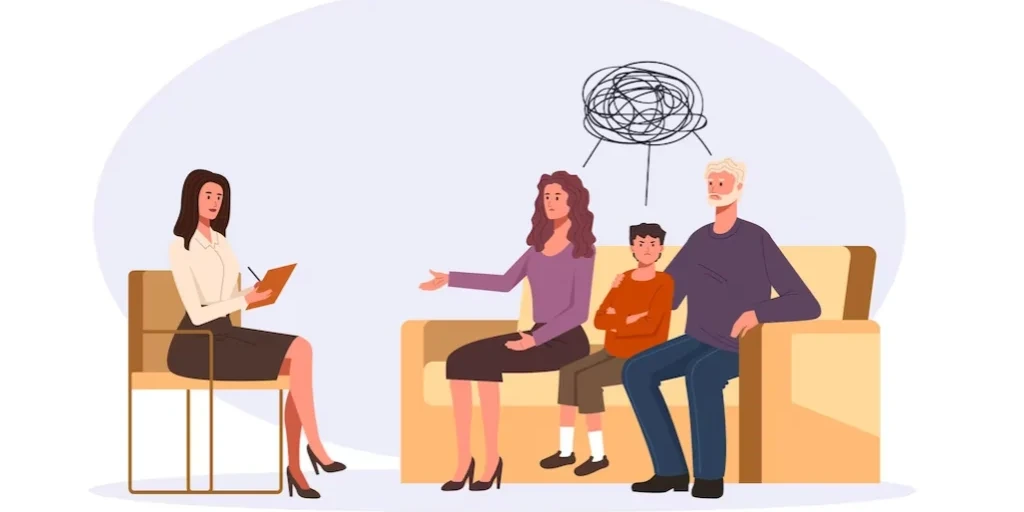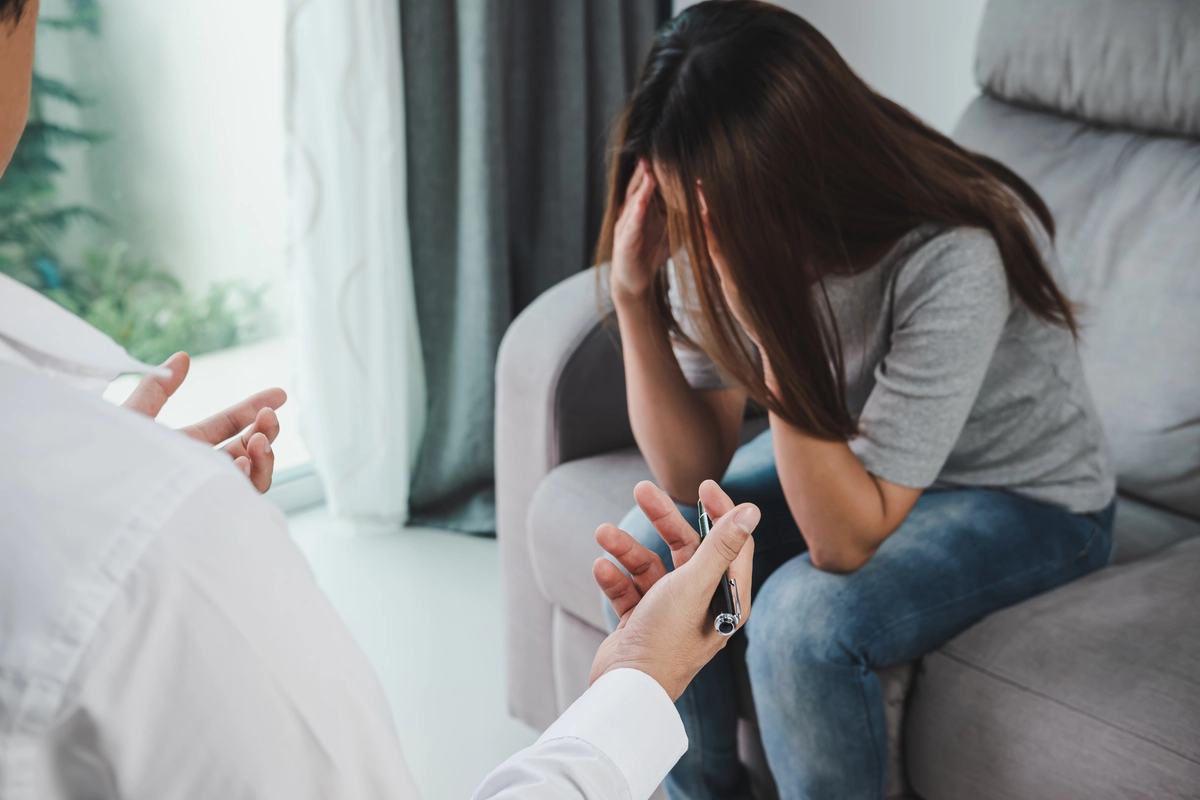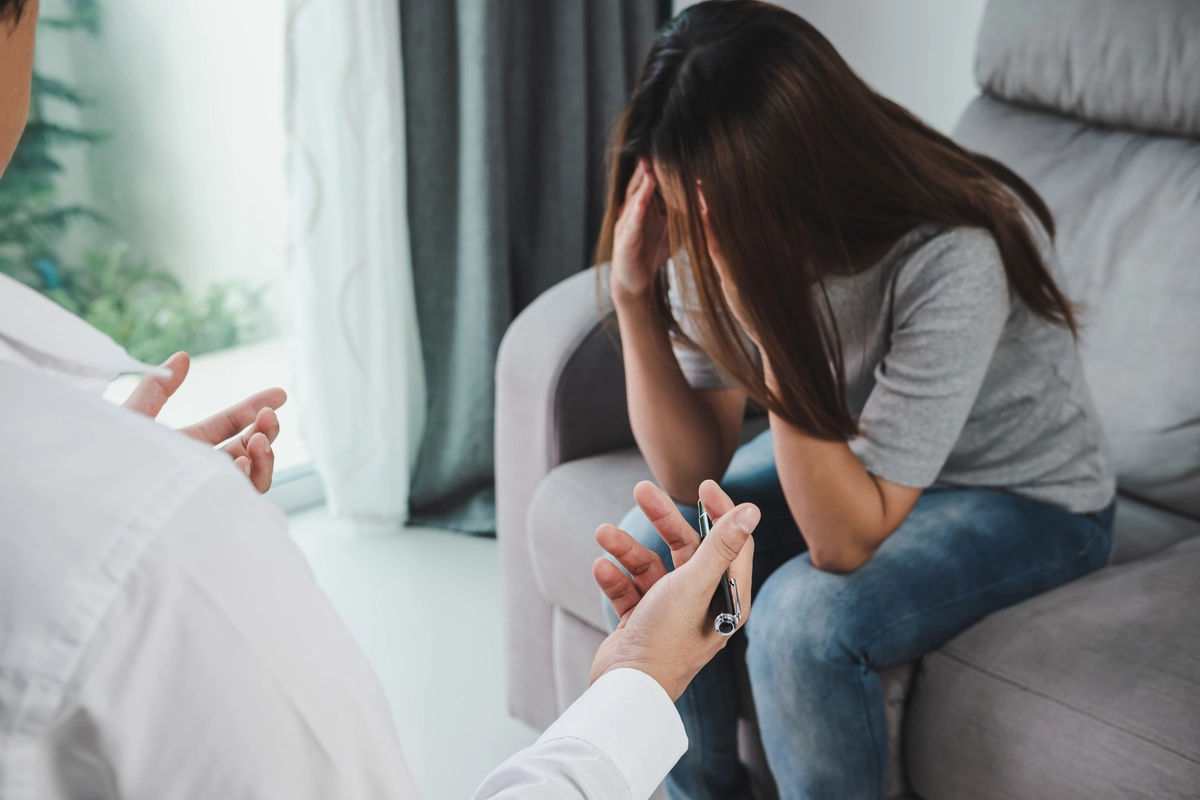24/7 Helpline:
(866) 899-221924/7 Helpline:
(866) 899-2219
Learn more about Depression Treatment centers in Orange
Depression Treatment in Other Cities

Other Insurance Options

Premera

Coventry Health Care

Excellus
Beacon

AllWell

Self-pay options

Choice Care Network

Kaiser Permanente

Meritain

WellPoint

Evernorth

Regence

EmblemHealth

American Behavioral

Holman Group

Access to Recovery (ATR) Voucher

Magellan

UMR

Anthem

Multiplan

Serenity New Life
Serenity New Life is a private rehab located in Orange, California. Serenity New Life specializes in...

Twin Town Treatment Centers
Twin Town Treatment Centers, in Orange, California, is a 12 step-focused drug and alcohol rehab for ...

CA Diversion Intervention Foundation
CA Diversion Intervention Foundation is a private rehab located in Orange, California. CA Diversion ...

Chapman Medical Center – Behavioral Health
Chapman Medical Center – Behavioral Health is a private rehab located in Orange, California. Chapman...

Chapman House
The Chapman House stands as an accredited substance abuse rehab center in Orange, CA for men and wom...

Cornerstone of Southern California
Cornerstone of Southern California - 427 S. Yorba Street offers transitional house services for indi...

CHD Outpatient Behavioral Health Services
CHD Outpatient Behavioral Health Services is a private rehab located in Orange, Massachusetts. CHD O...

ServiceNet – Orange Recovery Home
ServiceNet - Orange Recovery Home is a recovery house that offers help for adult men in the early st...

Family Connections
Family Connections is a private rehab located in Orange, New Jersey. Family Connections specializes ...

Psychology Associates – Orange
Psychology Associates – Orange is a private rehab located in Orange, Virginia. Psychology Associates...

Saint Josephs Hospital – Behavioral Health Services
Saint Josephs Hospital – Behavioral Health Services is a private rehab located in Orange, California...

Harbor Wood Services – ACM Recovery
Harbor Wood Services – ACM Recovery is a private rehab located in Orange, California. Harbor Wood Se...

Hopecube
Hopecube is a private rehab located in Orange, California. Hopecube specializes in the treatment of ...

Que Somos Hoy – Alcoholicos Anonimos
Que Somos Hoy Alcoholicos Anonimos offers outpatient treatment for individuals with alcohol and/or s...

Touchstones
Touchstones offers inpatient and outpatient treatment for individuals with alcohol and/or substance ...

C’s Aloha House
C’s Aloha House is a private rehab located in Orange, California. C’s Aloha House specializes in the...

Grupo Nuevo Modena Alcolicos
Grupo Nuevo Modena Alcolicos is a private rehab located in Orange, California. Grupo Nuevo Modena Al...

Mariposa Women and Family Center
Mariposa Women and Family Center is a private rehab located in Orange, California. Mariposa Women an...

Citrus Recovery Center
Citrus Recovery Center provides a residential treatment for individuals with substance addiction. Th...

Community Rehab
Community Rehab provides inpatient treatment for individuals with substance addiction. The program i...

Just One Recovery
Just One Recovery is dedicated to provide treatment for substance abuse and co-occurring disorders t...

Social Model Recovery Systems – Touchstones
Social Model Recovery Systems - Touchstones offers outpatient services for adolescents with alcohol ...

Teen Savers
Teen Savers offers inpatient and outpatient treatment for adolescents with alcohol and/or substance ...

New Essecare of New Jersey
New Essecare of New Jersey is a private rehab located in Orange, NJ. New Essecare of New Jersey spec...

AA – Alcoholics Anonymous
AA – Alcoholics Anonymous is a non-profit rehab located in Orange, Texas. AA – Alcoholics Anonymous ...

Assessment Professionals
Assessment Professionals is a private rehab located in Orange, Texas. Assessment Professionals speci...

SETCADA – Right Choice
SETCADA - Right Choice is an outpatient treatment program offering services Monday thru Friday at va...

South East Texas Management Network – Mental Rehabilitation
South East Texas Management Network – Mental Rehabilitation is a public rehab located in Orange, Tex...

Spindletop Center
Spindletop Center offers outpatient and intensive outpatient services in Jefferson, Orange, Hardin, ...

































